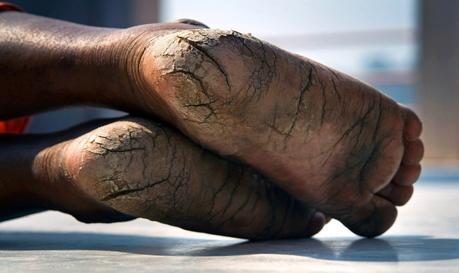
If you are reading this, then you should be possessing a smart phone or a computer, which says that you are not a poor person. So, you are born or enriched later to get a privilege to have three square meals a day.
The entire world is now gradually planning to come out of lockdown. The privileged people having shelter and money are comfortable in their houses. But some of us are not that lucky. The daily wage labors and migrant workers are suffering. Ok, we are already stuffed with this information by our gracious news channels and crocodile tears of our citizenry in social media. I don’t want to sound too cliché, so forget about corona virus and migrant workers, and let’s talk about poverty and the utter lack of access to basic things.
Some of us are lucky to be born into families who afforded us to provide better quality of food and education, at least up to their levels of capability. We might have only sympathy towards the poor, and in pandemic situations like this, a little more sympathy which might drive our hearts to donate something to them. Nothing more than that.
Why is it that several people suffer at different levels; the rich suffer less and the poor more, if the potential life threat caused by this virus remains the same to all?
This virus was brought into the country by the rich traveling in the airplanes, and they seem to have escaped easily from the pandemic. But the poor who are working for the benefit of the rich with minimum wages are suffering due to no wages and food. This imbalance of dynamics in cause and effect at social levels is bothering the humanity since ages.
Is it unbridled capitalism or the failure of government the reason for the hardships faced by Indian poor today due to this multiple versions of lockdown?
I cannot criticize the government now, but let’s look into the significance of capitalism in today’s crisis.
According to Ricardo Hausmann from Harvard while analyzing Marx’s comments on capitalism, he says that the historic role of capitalism was to reorganize production. As a result, means of production would no longer be owned by those doing the work, as on the family farm or in the craftsman’s workshop, but by “capital.” Workers would possess only their own labor, which they would be forced to exchange for a miserable wage. Nonetheless, they would be more fortunate than the “reserve army of the unemployed” – a pool of idle labor large enough to make others fear losing their job, but small enough not to waste the surplus value that could be extracted by making them work.
It is clearly understood that capital rules the roost today. But not everyone is lucky enough to possess that and hence the difference between haves and have nots. On the other hand, it should also be noted that this difference levels of possession are also the reason why capital is more valued which substantiates Supply-Demand economics.
The concept of welfare state should be analyzed deeper in this juncture. I have observed and strongly believe India is not a full welfare state, but a semi welfare state where welfare activities are immensely influenced and impacted by political interests. So, I was not surprised when the plight of poor migrant labourers came out. If the organization or the privileged rich to whom these labourers worked for cared about their wellbeing, we would not have witnessed the heart rending pictures of several incidents in the news today.
The society is drawing a thick visible line between an employee and a labour, even though both of them work for the capital masters. While the former earns dignity and respect, the latter is looked down harshly. However, an employee is also not guaranteed his/her job in an economic crisis like this as we could see many layoffs happening across the industries.
Capitalism did not create absolute poverty, but it inherited it from pre-capitalist systems.
Indian economy inherited poverty from British colonialism. After Independence, there was no capital, people were in extreme poverty and the country had to deal with conflicts both inside and outside. All during this decades, our economic strategy struggled very hard to reduce the poverty levels. Though progress is made and the power of Indian economy is visible on the global front which happened due to the merits of competitive capitalism, yet I feel this is not sufficient to make India a happier and sustainable country, especially when a crisis like this highlights the invisible cracks in our system of business and governance.
https://www.weforum.org/agenda/2015/08/does-capitalism-cause-poverty/
